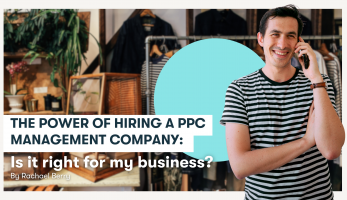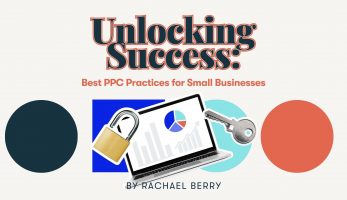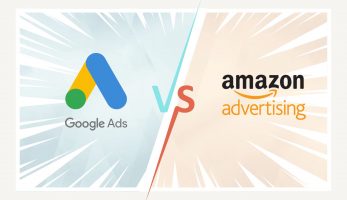Influencing factors of PPC cost
Keywords
The choice of keywords directly impacts the competition for ad placement and the cost per click (CPC).
Highly competitive and popular keywords often come with a higher price tag, as numerous advertisers are bidding for them.
Conversely, long-tail keywords or those with lower search volume tend to have lower CPCs.
Strategic keyword selection that balances relevance and cost is essential.
Advertisers must research, target, and optimize keywords effectively to strike a balance between visibility and affordability, ensuring that their PPC campaigns drive valuable traffic within their budgetary constraints.
Quality score and ad rank
Quality Score, assessed by search engines like Google, is a measure of the relevance and quality of your ads, keywords, and landing pages.
Ad Rank, on the other hand, determines the position of your ad in search results.
A high Quality Score and Ad Rank can lead to lower costs and better ad placements.
When your ad is deemed more relevant and engaging to users, you’re rewarded with a higher Ad Rank, which often means lower CPCs and a better chance of appearing in top positions.
Conversely, lower Quality Scores can result in higher costs, as you may need to bid more to maintain visibility.
Thus, focusing on improving Quality Score and Ad Rank through relevant keywords, compelling ad copy, and optimized landing pages can help advertisers achieve better ROI and cost-effectiveness in their PPC campaigns.
Industry competition
In highly competitive industries where many businesses are vying for the same target audience, it won’t be surprising that the cost per click (CPC) tends to be higher.
This is because more advertisers are bidding for the same keywords, driving up the demand and, consequently, the price.
In contrast, less competitive industries may offer lower CPCs, as there is less competition for keywords.
Understanding the level of competition in your specific industry is crucial for budget planning and setting realistic expectations for PPC costs.
It also underscores the importance of effective keyword selection and strategic bidding strategies to navigate and succeed in competitive markets while managing advertising expenses.
Using trusted tools such as Ahrefs and Google Keyword Planner can help with your keyword research and campaign planning.
Geographical targeting
With PPC, advertisers can choose to target specific locations, cities, regions, or even countries with their ads.
You can also exclude areas if there is anywhere you specifically don’t want your ad to be shown.
The cost of PPC can vary based on the geographic location you target.
In highly competitive and densely populated areas, such as major cities, the demand for ad space may drive up CPCs.
Conversely, targeting less competitive or less densely populated regions can result in lower CPCs.
Advertisers must consider their target audience’s location, the competition in those areas, and the potential value of clicks from specific locations when setting their geographic targeting to optimize costs and ROI effectively.
To help calculate your target cost-per-click, use the following formula:
Target Cost Per Click =
(Revenue Generated per Sale x Your Website Conversion Rate) x 20%
Average PPC Costs in the UK
You’ve probably learned by now that PPC advertising can cost as much or as little as you want, and as we’ve established above, the CPC can vary greatly depending on the industry you’re in.
Industries such as finance, legal, and insurance tend to have higher CPC due to intense competition whereas other, less competitive industries will see a lower CPC.
The good thing is, that you can set a daily budget and also have the ability to change it in real time to suit your business needs.
If you’re looking for a PPC expert to help set up and manage your PPC campaigns (like ourselves), monthly fees can vary greatly from agency to agency and will depend on exactly what you want. As a ballpark, you can expect to pay anything from £250 upwards for a PPC management service.
Setting a PPC Advertising budget
Working out your budget is difficult but should be based on the amount of money you have at your disposal and your PPC goals.
Allocating your recourse wisely and getting the best possible ROI should be done by following these steps.
Determine your goal
What are you looking to achieve? Is it website traffic, to generate leads, boost sales, or brand awareness?
This will influence your budget allocation.
Understand your margins
Calculate your profit margins on the products or services you want to advertise.
Knowing how much you can afford to spend to acquire a customer is essential.
This will help you set a maximum cost per acquisition (CPA) or return on ad spend (ROAS) target.
Allocate by campaign and network
If you’re running multiple campaigns or using different advertising networks (e.g., Google Ads, Facebook Ads), allocate your budget strategically.
Some campaigns may perform better or require higher budgets than others.
Seasonal adjustments
If your business experiences seasonality, plan for adjustments in your PPC budget.
Allocate more budget during peak seasons and scale back during slower periods.
Contingency planning
Have a contingency plan in place in case your budget gets exhausted faster than expected.
You can set up automated rules to pause or adjust spending if necessary.
Review and update
Regularly review your budget allocation and make necessary changes as your business and advertising landscape evolve.
Flexibility is key to adapting to changing circumstances.

Strategies to reduce PPC cost
Keyword optimisation
In order to keep your PPC costs as low as possible, you should regularly review and update your list of keywords.
Keep adding industry-related keywords and experiment to see which ones perform best and drive results for your business.
Not all keywords will get you the results you’re after.
Pausing underperforming keywords will help you to avoid wasting your budget and ensure it is allocated to your best keywords.
Ad copy and landing page quality
Ad copy and landing page optimisation isn’t just for aesthetics; they’re fundimental to the success of your PPC campaign.
Ad copy and landing pages directly influence the Quality Score assigned to your ads by search engines like Google.
Quality Score is a measure of how relevant and user-friendly your ads and landing pages are.
Higher Quality Scores result in lower CPCs (Cost Per Click) and better ad rankings.
To go with this, you will also need well-crafted ad copy that is tailored to the user’s intent as this can significantly increase CTR.
When users see ads that are relevant to their search and compelling, they are more likely to click on them.
A higher CTR not only leads to more traffic but also indicates to search engines that your ads are valuable to users, potentially resulting in lower costs and improved ad positioning.
Finally, a well-optimized landing page provides a better user experience.
It should be easy to navigate, load quickly, and be mobile-friendly.
A positive user experience can encourage visitors to stay longer on your site and take the desired action, improving campaign performance.
Using tools such as Framer will help you create a user friendly landing page.
Ad scheduling
By aligning ad delivery with user behaviour and business objectives, businesses can improve the efficiency of their campaigns, enhance the user experience, and ultimately achieve better ROI from their PPC advertising efforts.
Different times of the day, week, or even season may yield varying levels of ad engagement and conversions.
Using the ad scheduling feature enables businesses to identify peak performance periods and allocate budget and resource effectively.
For example, a business with a physical shop may want to only have their ads live during business hours to ensure the ad will only show when people can contact or visit the shop.
Negative keywords
Negative keywords are words or phrases that prevent your ad from being shown to customers who are not interested in your product or service.
By excluding keywords that are not directly related to your products or services, you reduce the chance of your ad appearing for irrelevant searches and therefore improve your overall traffic and leads.
Regularly reviewing your negative keyword list will also reduce wasted ad spend by saving money on clicks from people who aren’t interested in what you’re offering.
This is particularly important for businesses on a small or tight budget.
By strategically using negative keywords, you can also gain a competitive edge.
This prevents competitors from exhausting your ad budget by repeatedly clicking on your ads for irrelevant queries (click fraud) or bidding on your brand terms.
See how we’ve helped many clients like you thrive…
We’ve helped 100’s of businesses take their business to the next level by introducing or improving their PPC ads and strategy.
Take a look at just some of the people we’ve helped and how.
The Crafty Black Dog smash their sales target and open a new store!
Leading South East-based Proactive Cleaners are sweeping up leads with their Google Ads!
Sapphire Collection shines with a staggering 238% boost in sales after only 2 months of Amazon Ads!
Key takeaways
We’ve explored the intricacies of PPC advertising costs in the UK.
We’ve covered the essential factors that influence these costs, including keyword selection, Quality Score, industry competition, and geographical targeting.
We’ve also provided valuable strategies to optimize PPC campaigns while managing budgets effectively.
As you embark on your PPC advertising journey, remember that continuous monitoring, adjustment, and optimization are key to achieving the best results.
If you’re looking for expert guidance or have specific questions about your PPC campaigns, we’re here to help.
Feel free to get in touch with our team of digital marketing experts to maximize the impact of your PPC advertising and achieve your business goals.
Don’t hesitate to reach out today for personalized assistance and tailored strategies.
Your success in PPC advertising starts with the right insights and support.




